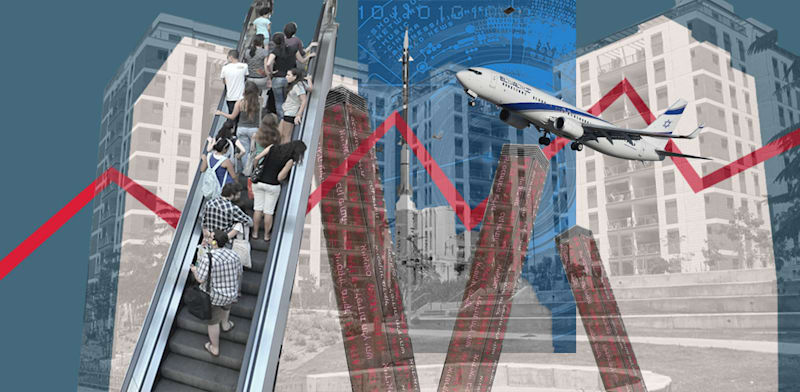L’Autorité israélienne de l’innovation et les ministères des Finances et de l’Economie ont lancé un « programme d’urgence de stimulation du capital humain » pour le secteur du high tech, devant la hausse de taux de chômage provoquée par la pandémie de coronavirus.
Ce programme vise à encourager la formation des travailleurs et à les aider à trouver des emplois dans le secteur du high tech. Il offrira des subventions aux employeurs et aux prestataires de formation professionnelle qui proposent des programmes de formation et de recrutement de salariés à des postes de recherche et développement (R&D) et à des postes de soutien à la R&D. Grâce à ce nouveau programme, environ 3 000 employés recevront une formation professionnelle au cours de l’année à venir, a déclaré l’Autorité israélienne de l’innovation dans un communiqué. (Times of Israel).
Dans nocamels : « The Israel Innovation Authority will launch a fund to develop human capital in the high-tech industry.Deposit Photos
The Israel Innovation Authority, the government’s tech investment arm, announced the launch of a new fund on Wednesday to help support the local high-tech industry as it moves to recover from the effects of the global pandemic in recent months.
The fund will focus on “current challenges,” the Innovation Authority said, by providing grants for new programs and models to broaden recruitment and to bolster skilled human capital in R&D. A budget of some NIS 20 million ($5.87 million) was allocated for the first year
The scope of the fund was defined with the labor division at the Ministry of Labor, Social Affairs and Social Services.
The fund’s incentive track will provide grants of up to 70 percent for programs costing up to one million shekels, or programs in early/ideation stage. There are also grants for programs costing one to 15 million NIS, or programs in growth/scale-up stage, where the authority will contribute up to 50 percent of the approved budget
As part of its incentive track, the fund will support diverse projects related to human capital development such as professional training, specialization, recruitment, professional development and locating potential. Proposals will be reviewed according to their ability to find challenges, rather than solutions, and will be assessed via clear benchmarks such as the recruitment of highly-paid, skilled human resources into the industry, innovation level, cost/benefit, ability to recruit partners, and scale-up.
The Innovation Authority said this incentive track will support social and commercial projects including the creation of new models or the expansion of existing projects, with the goal to alleviate the shortage of human capital, while expanding the number of players in the field and improving the quality of available solutions.
The track will also support more inclusive recruitment from under-represented communities in the high-tech industry such as Arab-Israelis, the ultra-Orthodox, citizens of Ethiopian descent, and those with disabilities. Projects located in the geographic periphery in Israel (outside the central area) will also be given special consideration.
“This period in which hundreds of thousands of Israelis have found themselves unemployed also provides an opportunity for the Israeli economy to retrain a portion of them for R&D positions in the high-tech industry,” said IIA CEO Aharon Aharon. “This new fund will integrate re-skilling for those with significant potential to contribute to the high-tech industry – with a focus on training job seekers for R&D positions – and up-skilling for current employees in this industry, who will receive specialized training.”
The fund’s first call for proposals will focus on a program to locate high-potential employees and offer re-skilling, training, on-the-job training (OJT), and specialization and placement for those adversely affected by the economic crisis. The program will also move to integrate immigrants and returning citizens with background and experience in R&D, and people from under-represented communities ».






